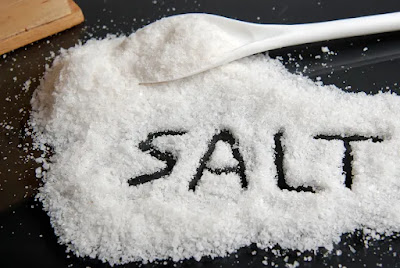Numerous health issues might develop in humans as a result of high sodium intake.
Nevertheless, the majority of people consume more salt than is advised.
The WHO estimates that if worldwide salt consumption were decreased to the recommended amount, 2.5 million deaths may be avoided annually.
Let's examine the many advantages of eating meals with little salt content.
WHO Recommendations For Reducing Salt Intake -
Adults should limit their daily salt intake to less than 5 grammes, or little about a teaspoon. The WHO advises significantly less salt consumption for kids between the ages of two and fifteen than it does for adults. Depending on the child's energy needs, this might change.
Regulates Blood Pressure -
Although the body only requires a tiny amount of sodium to function, the majority of Indians consume large amounts of it.
Blood pressure rises as a result of sodium intake; the more salt you eat, the higher your blood pressure will be.
This carries a significant risk of developing heart disease and stroke.
A low-salt diet maintains your heart healthy while also assisting in blood pressure control.
Enhances Bone Health -
Due to the fact that calcium is crucial for bone strength, eating foods high in salt can cause bone thinning and, ultimately, osteoporosis.
This is due to the fact that sodium levels in our bodies strongly correlate with the quantity of calcium that is lost during urination.
We urinate out more calcium when we have a high salt diet.
May Lower The Risk Of Cancer -
A high-salt diet has been linked to a number of malignancies, including stomach cancer.
Numerous studies have demonstrated how salt harms the mucosal lining of the stomach and can result in lesions that, if ignored, can develop into cancer.
A lower risk of cancer has been associated with a diet high in fruits and vegetables and low in salt.
Lowers The Likelihood Of Bloating -
Your digestive tract will benefit more from a diet low in salt.
There is still debate over the precise aetiology of bloating caused by salt. However, it can be explained by the sodium in salt, which causes water retention.
This results in facial and abdominal bloating as well.
If you frequently get bloated, you might want to reduce your salt intake.
Improved Mental Health -
According to studies, consuming too much salt lowers blood flow to the brain and impairs cognitive function.
Here, the arteries that supply the brain with blood become narrowed or obstructed. The blood flow to the brain is reduced as a result.
Dehydration brought on by a high salt intake might cause brain fog and moderate confusion.

